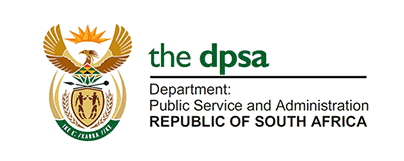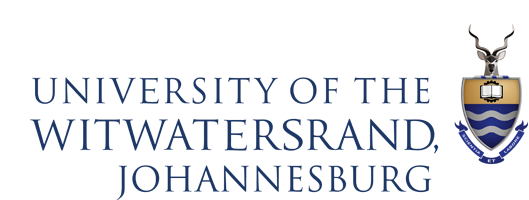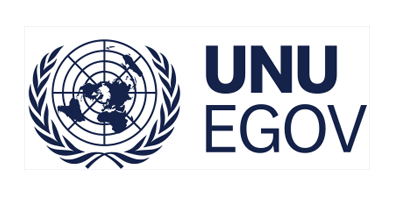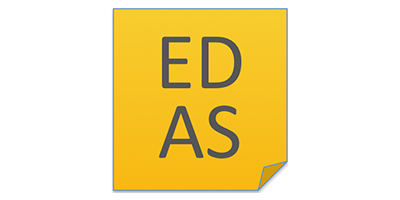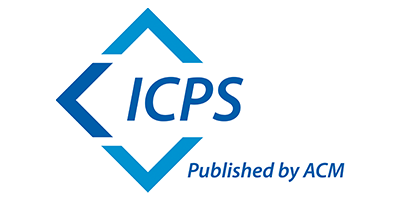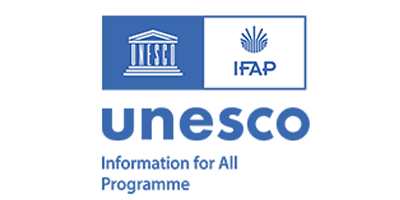Summary
About
The 12th International Conference on Theory and Practice of Electronic Governance (ICEGOV2019) took place in Melbourne, Australia, from 3 to 5 April 2019. The conference was held under the high patronage of the Digital Transformation Authority, Australian Government. The Royal Melbourne Institute of Technology (RMIT University) co-organised ICEGOV2019 with the United Nations University Operating Unit on Policy-Driven Electronic Governance (UNU-EGOV), which is as well the conference series coordinator. The conference organisation was also supported by the following sponsors: Huawei Technologies, Deloitte / Hewlett Packard Enterprise, IBM Corporation, and Springer.
Under the theme Exploring Digital Government Synergies to Foster Equality, Inclusiveness, and Productivity, ICEGOV2019 explored how existing and emerging digital technologies can be effectively harnessed to foster inclusiveness, equality, and sustainability. It also addressed the implications and costs associated with the use of such technologies. Several tracks on diverse themes were available for paper submission, ranging from broad topics in the field, such as digital transformation, to more specific topics, such as smart cities, security and privacy, open government, digital citizenship or government research and policy.
ICEGOV2019, much like its past editions , featured a rich programme of Keynote Lectures (6), Plenary Sessions (4), Paper Sessions (12), Invited Sessions (5), Industry Sessions (6), Workshops (6), a Poster Exhibition, and a Doctoral Colloquium, all based on submitted or invited contributions by researchers, experts, policy-makers, and practitioners from around the world. A total of 225 people from 43 different countries attended the conference over its 3-day duration.
Call for Papers
In response to the Call for Papers (available for download here), the conference received a total of 171 submissions written by 329 authors from 55 different countries. Subsequently, there was a double-blind peer-review process carried out by the Programme Committee (150 people). This review process resulted in 364 reviews and 81 accepted papers written by 187 authors, which are published in the conference proceedings.
Best Paper Awards
The winning papers in each category are shown below. The choices were carried by the Awards Committee.
Best Research Paper: Agile Mechanisms for Open Data Process Innovation in Public Sector Organizations: Towards Theory Building (F. Ahmadi Zeleti, A. Ojo).
Best Experience Paper: Role of Technology in Success of Rural Sanitation Revolution in India (S. Sengupta, D. Chandra Misra, M. Chaudhary, O. Aggarwal).
Best Poster Paper: The Digitalization of Custom Administration and Enterprises Competitiveness in Madagascar (V. Rakotonirina, H. Raoelson).
Statistics
If you would like to obtain more data than what is available on this page, please email your request to icegov@icegov.org.
Attendance: 225 people
- Academia: 109 (49%)
- Government: 56 (25%)
- Industry: 29 (13%)
- Other: 16 (7%)
- International Organisations: 15 (6%)
Gender balance: 155 male, 70 female (69% / 31%)
Countries: 43
Country distribution: 18 developed countries, 25 developing countries (41% / 59%)
Papers submitted: 171
Authors: 329 authors from 55 countries
Papers published: 62
Acceptance rate: 36%*
Scholarships awarded: 31
Programme Committee: 147 members from 47 countries
*the acceptance rate includes only full and short papers; poster papers, workshops or invited talks are not considered.
Proceedings
Publications
Institutions
Patron
- Digital Transformation Agency, Australian Government
Organisers
- Royal Melbourne Institute of Technology
- United Nations University Operating Unit on Policy-Driven Electronic Governance (UNU-EGOV)
Sponsors
- Huawei Technologies
- Deloitte / Hewlett Packard Enterprise
- IBM
- Springer
Comittees
Conference Chairs
Michael KEENAN, Minister for Human Services and Digital Transformation, Australian Government
David M. MALONE, Rector of the United Nations University, Japan
Conference Committee
Soumaya BEN DHAOU, United Nations University (UNU-EGOV), Portugal • PC Chair
Lemuria CARTER, University of New South Wales, Australia • PC Chair
Mark Gregory, RMIT University, Australia • PC Chair
Chris McCONVILLE, RMIT University, Australia • Organisation Chair
Elisabete SIMÕES, United Nations University (UNU-EGOV), Portugal • Organisation Chair
Mariana LAMEIRAS, United Nations University (UNU-EGOV), Portugal • Workshops Chair
Morten MEYERHOFF NIELSEN, United Nations University (UNU-EGOV), Portugal • Invited Sessions Chair
Mário PEIXOTO, United Nations University (UNU-EGOV), Portugal • Communications Chair
Cristina BRAGA, United Nations University (UNU-EGOV), Portugal • ICEGOV Secretariat
José FARIA, United Nations University (UNU-EGOV), Portugal • ICEGOV Secretariat
ICEGOV Steering Committee (2019)
Theresa A. PARDO, Center for Technology in Government, University at Albany (SUNY), USA
John BERTOT, University of Maryland, USA
João Álvaro CARVALHO, University of Minho, Portugal
Wojciech CELLARY, Pozna? University of Economics and Business, Poland
Elsa ESTEVEZ, National University of the South, Argentina (Chair)
Paul HECTOR, UNESCO Regional Bureau for Sciences in the Arab States, Egypt
Tomasz JANOWSKI, Technical University of Gda?sk, Poland
Marijn JANSSEN, Delft University of Technology, Netherlands
Atreyi KANKANHALLI, National University of Singapore, Singapore
Adegboyega OJO, National University of Ireland Galway, Ireland
Peter PARYCEK, Danube University Krems, Austria
Delfina SOARES, United Nations University (UNU-EGOV), Portugal
Luís SOARES BARBOSA, United Nations University (UNU-EGOV), Portugal
Awards Committee
João Álvaro CARVALHO, University of Minho, Portugal (Chair)
Soumaya BEN DHAOU, United Nations University (UNU-EGOV), Portugal
Zeineb OUNI, the University of Quebec in Trois-Rivieres, Canada
Rui QUARESMA, University of Évora, Portugal
Programme Committee
Theresa A. PARDO, Center for Technology in Government, University at Albany SUNY, USA
Jorge ABIN, AGESIC, Uruguay
Gbenga ADEBUSUYI, State Government of Osun, Nigeria
Steve ADESHINA, Nile University of Nigeria, Nigeria
Fatemeh AHMADI ZELETI, National University of Ireland Galway, Ireland
Erwin ALAMPAY, University of the Philippines, Philippines
Ayman ALARABIAT, University of Minho, Portugal
Salma AL-BURTAMANI, Information Technology Authority, Oman
Ali AL-LAWATI, Information Technology Authority, Oman
Hamed AL-SHEKAILI, Information Technology Authority, Oman
Charalampos ALEXOPOULOS, University of the Aegean, Greece
Luís AMARAL, University of Minho, Portugal
Dennis ANDERSON, St. Francis College, USA
Aggeliki ANDROUTSOPOULOU, University of the Aegean, Greece
Leonidas ANTHOPOULOS, University of Applied Science (TEI) of Larissa, Greece
Wagner ARAUJO, United Nations University (UNU-EGOV), Portugal
Irfanullah ARFEEN, Quaid-i-Azam University, Pakistan
Johanna AWOTWI, Centre on e-Governance, Ghana
Majed AYYAD, University of Trento, Italy
Mesfin BELACHEW, Agricultural Transformation Agency (ATA), Ethiopia
Soumaya BEN DHAOU, United Nations University (UNU-EGOV), Portugal
Hatem BEN-STA, the University of Tunis at El Manar, Tunisia
Jaroslav BERCE, University of Ljubljana, Slovenia
Lasse BERNTZEN, University College of Southeast Norway, Norway
Hasnain BOKHARI, University of Erfurt, Germany
Catarina BRAGANÇA, United Nations University (UNU-EGOV), Portugal
Luca BUCCOLIERO, Bocconi University, Italy
Luís M. CAMARINHA-MATOS, Lisbon University, Portugal
Lorenzo CANTONI, Università della Svizzera italiana, Switzerland
Lemuria CARTER, University of New South Wales
Javier CARRANZA TORRES TRESOLDI, GeoCensos, Colombia
Joana CARVALHO, University of Minho, Portugal
João Álvaro CARVALHO, United Nations University (UNU-EGOV), Portugal
Nuno CARVALHO, United Nations University (UNU-EGOV), Portugal
Alejandra CECHICH, National University of Comahue, Argentina
Wojciech CELLARY, Pozna? University of Economics and Business, Poland
Carlos CHESÑEVAR, National University of the South, Argentina
Sunil CHOENNI, Research and Documentation Centre (WODC), Netherlands
Andrei CHUGUNOV, ITMO University, Russia
Soon CHUN, City University of New York, USA
Gaston CONCHA, University Santa Maria, Chile
Meghan COOK, Center for Technology in Government, University at Albany (SUNY), USA
Flavio CORRÊA DA SILVA, University of São Paulo, Brazil
Frank DANIELSEN, University of Agder, Norway
Rahul DE’, Indian Institute of Management Bangalore, India
Dongpo DENG, Independent Researcher, Chinese Taipei
Vasiliki DIAMANTOPOULOU, University of the Aegean, Greece
Gonçalo DIAS, University of Aveiro, Portugal
Débora DUTRA, State University of Rio Grande do Sul, Brazil
Elsa ESTEVEZ, National University of the South, Argentina
Herilala FANOMEZANTSOA, World Bank, Madagascar
Shahid FAROOQ, Government of the Punjab, Pakistan
Isabel FERREIRA, Polytechnic Institute of Cávado and Ave, Portugal
Pablo FILLOTTRANI, National University of the South, Argentina
Vítor FONTE, United Nations University (UNU-EGOV), Portugal
Tagelsir GASMELSEID, International University of Africa, Sudan
Louis GEOFFROY-TERRYN, University of Milan, Italy
Ramon GIL-GARCIA, Center for Technology in Government, University at Albany (SUNY), USA
Maria GINTOVA, Ryerson University, Canada
Nato GODERDZISHVILI, Data Exchange Agency, Georgia
Yiwei GONG, Wuhan University, China
Viktor GRECHYN, RMIT University, Australia
Mark GREGORY, RMIT University, Australia
Roger HARRIS, Roger Harris Associates, Hong Kong SAR
Mathias HATAKKA, Dalarna University, Sweden
Paul HECTOR, UNESCO Regional Bureau for Sciences in the Arab States, Egypt
Bryan HO, University of Macau, Macau SAR
Tupokigwe ISAGAH, University of Koblenz-Landau, Germany
Thomas J. LAMPOLTSHAMMER, Danube University Krems, Austria
Tomasz JANOWSKI, Technical University of Gda?sk, Poland
Marijn JANSSEN, Delft University of Technology, Netherlands
Carlos JIMÉNEZ, IEEE e-Government, Spain
Zoran JORDANOSKI, United Nations University (UNU-EGOV), Portugal
Yury KABANOV, National Research University Higher School of Economics, Russia
Paul KARIUKI, University of KwaZulu-Natal, South Africa
Ralf KLISCHEWSKI, German University in Cairo, Egypt
Robert KRIMMER, Tallinn University of Technology, Estonia
Hiroko KUDO, Chuo University, Japan
Zoi LACHANA, University of the Aegean, Greece
Mariana LAMEIRAS, United Nations University (UNU-EGOV), Portugal
Jungwoo LEE, Yonsei University, Republic of Korea
Calvin LEONG, MSARG, Macau SAR
Shuo LI, RMIT University, Australia
Dapeng LIU, Virginia Commonwealth University, USA
Rui LOURENÇO, University of Coimbra, Portugal
Luís F. LUNA-REYES, University at Albany (SUNY), USA
Lorenzo MADRID, Smart City Business Institute, USA
More MANDA, MERSETA, South Africa
Jenny Marcela MARCELA SANCHEZ-TORRES, National University of Colombia, Colombia
João MARCO C. SILVA, University of Minho and INESC-TEC, Portugal
Glenn MATTHEWS, RMIT University, Australia
Rony MEDAGLIA, Copenhagen Business School, Denmark
Sehl MELLOULI, Laval University, Canada
Diana MESQUITA, United Nations University (UNU-EGOV), Portugal
Morten MEYERHOFF NIELSEN, United Nations University (UNU-EGOV), Portugal
Jeremy MILLARD, Third Millennium Governance, Denmark
Yuri MISNIKOV, e-Governance Academy, Estonia
Harekrishna MISRA, Institute of Rural Management Anand, India
Maria Helena MONTEIRO, Lisbon University, Portugal
Taewoo NAM, Sungkyunkwan University, Republic of Korea
Niels NETTEN, Research and Documentation Centre (WODC), Netherlands
Nikolaos NOMIKOS, University of the Aegean, Greece
Lizzy OFUSORI, University of KwaZulu-Natal, South Africa
Adegboyega OJO, National University of Ireland Galway, Ireland
João Luís OLIVEIRA MARTINS, United Nations University (UNU-EGOV), Portugal
Craig ORGERON, MS Department of IT Services, USA
Gatis OZOLS, Ministry of Environmental Protection and Regional Development, Estonia
Shan PAN, University of New South Wales, Australia
Ilias PAPPAS, University of Agder, Norway
Vassilios PERISTERAS, International Hellenic University, Greece
Anna PICCO-SCHWENDENER, Università della Svizzera Italiana, Switzerland
Marta POBLET BALCELL, RMIT University, Australia
Lukasz PORWOL, National University of Ireland Galway, Ireland
Devendra POTNIS, the University of Tennessee at Knoxville, USA
Amit PRAKASH, International Institute of Information Technology Bangalore, India
Marco PRANDINI, University of Bologne, Italy
Rui QUARESMA, University of Évora, Portugal
Voahangy RAKOTONIRINA, University of Antananarivo, Madagascar
Manuel Pedro RODRÍGUEZ BOLÍVAR, University of Granada, Spain
Christian RUPP, Federal Chancellery, Austria
Edgar Alejandro RUVALCABA GOMEZ, Madrid Autonomous University, Spain
Alexander RYJOV, Moscow State University, Russia
Mortaza S. BARGH, Rotterdam University of Applied Sciences, Netherlands
Dimitrios SARANTIS, United Nations University (UNU-EGOV), Portugal
Vaibhav SHAH, United Nations University (UNU-EGOV), Portugal
Muhaemin SIDIQ, muhaem.in, India
Hamida SKANDRANI, Institut Supérieur de Comptabilité et d’Administration des Entreprises, Tunisia
Eriks SNEIDERS, Stockholm University, Sweden
Delfina SOARES, United Nations University (UNU-EGOV), Portugal
Luís SOARES BARBOSA, United Nations University (UNU-EGOV), Portugal
Andrzej SOBCZAK, Warsaw School of Economics, Poland
Fabro STEIBEL, ITS Rio and Laboratory for Creative Cities ESPM Rio, Brazil
Evgeny STYRIN, National Research University Higher School of Economics, Russia
Efthimios TAMBOURIS, University of Macedonia, Greece
Felix TAN, University of New South Wales, Australia
António TAVARES, United Nations University (UNU-EGOV), Portugal
Louise THOMASEN, coThomasen, Denmark
Dmitrii TRUTNEV, ITMO University, Russia
Hsien-Lee TSENG, Taiwan e-Governance Research Center, Chinese Taipei
David VALLE-CRUZ, Autonomous University of the State of Mexico, Mexico
Gabriela VIALE PEREIRA, Danube University Krems, Austria
Lyudmila VIDIASOVA, ITMO University, Russia
Merrill WARKENTIN, Mississippi State University, USA
Peter WINSTANLEY, Scottish Government, United Kingdom
Tung-Mou YANG, National Taiwan University, Chinese Taipei
Moinul ZABER, University of Dhaka, Bangladesh
Jing ZHANG, Clark University, USA
Franklin ZIGGAH, National Information Technology Agency, Ghana
Saleem ZOUGHBI, International Advisor, Palestine
Cristina ZUBILLAGA, AGESIC, Uruguay
Sessions
The full conference programme is available for download here.

